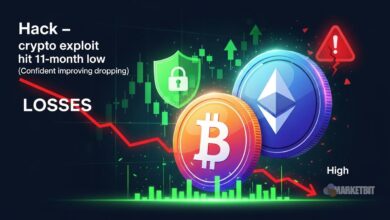News
11 hours ago
Bitcoin holdings rise as ProCap buybacks trim NAV discount
SEC filings confirm a 450 BTC buy and below-NAV repurchases, lowering cost and discount, ProCap…
News
14 hours ago
Anthropic faces Pentagon push on AI limits as DPA risk looms
Analysts cite supply risk and contract levers in the Pentagon–Anthropic standoff over Defense Production Act,…
News
17 hours ago
Qivalis Euro Stablecoin advances under MiCA, exchange talks
Qivalis euro stablecoin advances as banks negotiate with exchanges; MiCA path runs through a Dutch…
News
23 hours ago
Crypto losses fall to 11-month low in February
February 2026 crypto losses hit the lowest since March 2025, data shows, as phishing and…
News
1 day ago
X revises crypto promotions under updated labeling policy
X Paid Partnerships policy now permits labeled crypto posts, while X Ads remain restricted in…
News
2 days ago
Bitcoin recovers to $68K on Khamenei death reports
Bitcoin recovers to $68K, Khamenei death reports, Bitcoin derivatives liquidations: macro shock spurred liquidations; focus…
News
2 days ago
Anthropic faces Pentagon supply-risk tag after DPA move
Anthropic Claude guardrails, Defense Production Act (DPA), Pentagon supply chain risk designation: How a refusal…
News
3 days ago
Bitcoin miners tap high-yield, converts for AI/HPC buildouts
Topics: high-yield bonds, convertible notes, AI/HPC data centers; analysts cite execution risk, debt service, macro…
Blockchain Event
3 days ago
UAE Institutional Leaders Gather in Abu Dhabi as Digital Asset Strategy Accelerates Across the Gulf
Global banks, asset managers, regulators, and sovereign-backed institutions convene at the inaugural Digital Assets Forum…
News
3 days ago
Anthropic flagged as supply risk; OpenAI inks Pentagon deal
U.S. halts federal use after an Anthropic supply-chain risk label under the Defense Production Act;…
$ 68,417.00

Bitcoin (BTC)
1h0.01%
24h2.52%
USD
EUR
GBP

























